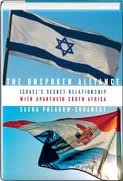How to Criticize Israel without being Anti-Semitic: The Unofficial Guide
The news media have once again been ablaze with reports of Israel’s military attack on Gaza. The historic Israeli-Palestinian conflict has, consequently, returned as a subject of discussion at cafés, salons, and dinner tables.
The discussion, however, is not an easy one to have—unless, of course, you are foursquare behind Israel. Criticism of Israel very quickly lands the critic into trouble; accusations of anti-Semitism are fired back as if from an Uzi. What is more, these accusations can sometimes come accompanied by raised voices, red faces, bared teeth, waved fists, and even rude expletives. Sometimes, not even Jews can avoid them. So it is understandable that non-Jews desiring to avoid drama think it best to keep mum.
Noticing the problem, and apparently in the interest of free and open debate, a concerned Jewish blogger has recently made waves posting a 19-point guide on how to criticize Israel without being anti-Semitic. The Tumblr blog post has, at the time of writing, attracted 8485 notes. And the BBC deemed it so useful that they even reported it on their news website.
As TOO was created for purposes of free and open debate, including Jews and Israel, it seems pertinent that we examine the 19 points. Perhaps we will find in them the Philosopher’s Stone in our efforts to discuss important matters involving Jews without being accused of ignorance and moral turpitude. The points are meant to be considered in no particular order.
1. Don’t use the terms “bloodthirsty,” “lust for Palestinian blood,” or similar. Historically, Jews have been massacred in the belief that we use the blood of non-Jews (particularly of children) in our religious rituals. This belief still persists in large portions of the Arab world (largely because White Europeans deliberately spread the belief among Arabs) and even in parts of the Western world. Murderous, inhumane, cruel, vicious—fine. But blood…just don’t go there. Depicting Israel/Israelis/Israeli leaders eating children is also a no-no, for the same reason.
While one can understand the desire to avoid rehashings of the ancient blood libel, this seems a little paranoid in the case of “bloodthirsty”. Read more






